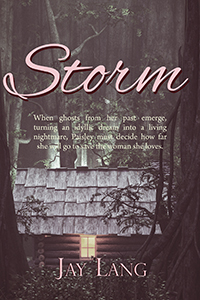I’m Beatrice Lulu Eberhardt. Some of you know me from my niece, Callie Johnson. Callie’s the police chief of our little town, and I first appeared in her book, All in the Family.
Callie’s my favorite niece, but she doesn’t know it. I’ve annoyed her sometimes because I tried to fix her up with a nice young man, well several nice young men, over the years. I didn’t want her ending up an old maid like I almost was. I say almost because Ed came along and saved me that fate – I shudder to think what my life would have been like without him.
Callie didn’t care for any of the men I introduced her to. Picky little thing in my opinion. Praise God, she finally met a nice young man on her own.
But that’s neither here nor there. This story isn’t about Callie. It’s about me.
That’s right, ME, and pretty much no one else. I consider myself a bit of a sleuth. Some call me nosy or a busy body, but honestly, I’m only trying to help. I don’t mean to interfere. I can’t help if I have a curious nature. I’ve always been that way but got worse as I got older.
It actually all started when Ed and I bought a cabin. It’s a beautiful place with its own lake because Ed loves to fish. We thought it would be fun to have a place just for us, away from everyone. You may not remember I’m from a large, crazy family. Crazy in a fun-loving way, of course. So Ed and I wanted a place to relax away from it all, not that it’s turned out that way. We’re seldom alone. Guess it’s because we genuinely like people.
So nowadays when we go up there, someone always comes along. Usually Ethel and her husband, Greg. Ethel’s my sister, by the way. I have two other sisters, also – Charlotte, we call her Lottie, and Lillian. Lillian is Callie’s mother, and not as much fun as the rest of us. We also have a brother, Clyde, but we don’t see him as often.
Anyway, we bought the cabin, and Ed and I went up there to clean it up. No one had been in it for years. Cobwebs filled more than the corners, I’ll tell you that. It was going to take days, if not weeks, to clean it. But Ed promised we could fix it up and Ed never breaks a promise. That’s one of the things I love about him.
So there we were looking around, figuring out what to do, and Ed decided to build a fire to take the chill and damp out of the air. The place smelled musty, the way empty houses smell after being locked up for a long time.
So, there I was, thinking about where to start when I heard a strange clattering noise. I thought Ed fell or something. I turned around and lying on the fireplace hearth was an arm – well what was left of the arm, bones and tattered flannel from a shirt, I assume.
Although I’ve been told never to assume anything.
If you want to know what happens next you’ll have to read about it in All’s Well That Ends Well published by BWL Publishing.
If you haven’t read All in the Family – Book 1 of the Family Affair series, you can find it and all my books at Books We Love. Just click on the book and it’ll take you to the buy page.































